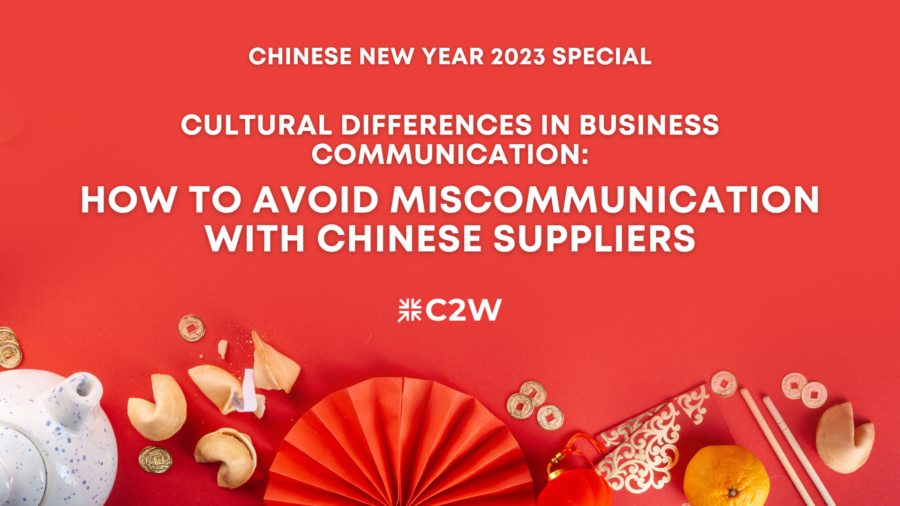When it comes to doing business with Chinese suppliers, effective communication is crucial. However, cultural differences can often make communication challenging.
Face/Mianzi/面子
It’s important to understand that in China, the concept of “face” is highly valued. Face refers to maintaining respect, dignity, and social status. When communicating with Chinese suppliers, it’s important to be aware of how your words and actions may affect their face.
For example, during negotiations with a Chinese supplier, if you come across as too demanding or aggressive, it may be perceived as a lack of respect or as if you are challenging the supplier’s authority. This can lead to them losing face in front of their colleagues or superiors, and in turn, they may become less cooperative, or worse, they may walk away from the deal.
On the other hand, if you’re too passive or submissive, it may also cause them to lose face, as they may perceive it as a lack of determination or interest on your side, this can lead to them taking advantage of you, not taking your business seriously or providing you with lower quality products or service.
To avoid causing your Chinese suppliers to lose face, it’s essential to find the right balance in your communication. You should be assertive without being aggressive and respectful without being submissive.
This can be likened to walking a tightrope, where you need to find the balance between being firm and being diplomatic. Being assertive means standing up for your interests and being confident in your position, but it should never come across as being overbearing or pushy.
Being respectful means showing consideration for the supplier’s position and being willing to compromise, but it should never come across as being weak or indecisive.
Relationship/Guanxi/关系
Another cultural difference to keep in mind is the concept of “guanxi”, which refers to building personal relationships. In China, business is often done on a personal level, and having a good guanxi with your supplier can make all the difference.
For example, if you have a good guanxi with a Chinese supplier, they may be more likely to prioritize your order, offer you better prices or terms and go the extra mile to help you out, when you need it. However, if you don’t have a good guanxi, they may not be as willing to work with you, they may be less flexible, and they may not be as responsive to your requests.
To build guanxi with Chinese suppliers, it’s essential to show them that you’re a trustworthy and dependable business partner. This can be done by keeping your promises, being punctual, and showing a genuine interest in their culture and customs.
Building guanxi takes time, so it’s important to be patient and not expect immediate results. It’s also important to be consistent in your behavior and communication, to be honest, and to be reliable. Be aware of the cultural norms, customs and taboos, when interacting with Chinese suppliers.
It’s also important to note that Chinese suppliers may have a different understanding of time and deadlines. For example, they may have a more relaxed attitude towards deadlines and may not be as punctual as their western counterparts. Therefore, it’s important to set clear expectations and deadlines in advance and to communicate them effectively.
Negotiating Styles
Additionally, it’s important to be aware of the different negotiation styles used in China. Chinese suppliers may prefer to build relationships and establish trust before discussing specific details of the deal. They may also prefer to negotiate as a team rather than individually.
Therefore, it’s essential to be patient and to build relationships before discussing specific details of the deal. It’s of great importance to be aware of the potential for multiple rounds of negotiation and to be prepared for this.
Language Barriers
language barriers also factor in the culture difference. While many Chinese suppliers may speak English, it’s not always their first language and they may not be as fluent as native speakers. This can lead to misunderstandings and miscommunication.
To avoid this, it’s important to speak clearly and to use simple language. It’s also important to be patient and to be willing to ask for clarification if something is not understood. Additionally, it’s helpful to have a translator or interpreter available when needed.
Communicating with Chinese suppliers can be challenging due to cultural differences, but by understanding the importance of “face”, “guanxi”, and cultural differences in communication, you can avoid miscommunication and build strong, long-lasting relationships with your Chinese suppliers. What should also come to your attention are the different negotiation styles, time management, and to have a clear understanding of the legal and regulatory environment in China.
It’s essential to be open-minded, flexible, and willing to adapt to different ways of doing business. With these considerations in mind, you’ll be well on your way to building successful business relationships with Chinese suppliers.
But if you have a good manufacturer with much China experience on the ground, you’ll be spared lots of efforts and get to focus on your business development. One like C2W, with over 17 years in China, having helped so many companies reap the benefits of China’s manufacturing industry. Contact us today!


